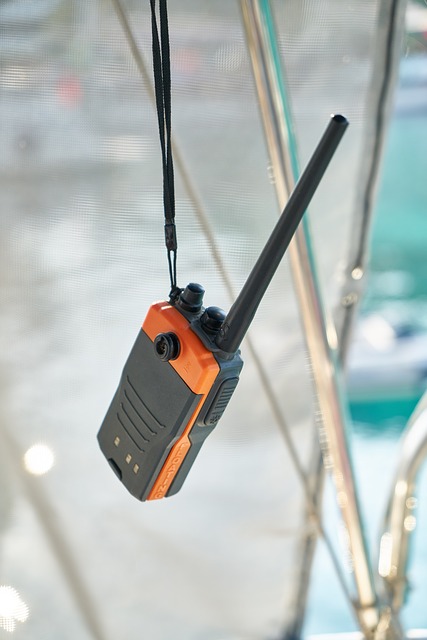
A lot of boaters do not know the rules and courtesies of using a VHF radio.
A VHF radio is an essential component of marine safety equipment that should be on board every vessel. Knowing how to properly use it could save lives, so you should familiarize yourself with the radio and its functions. Your VHF marine radio can be used to communicate with other boats, draw bridges, and the Coast Guard and other authorities. Unfortunately, a lot of boaters do not know the rules and courtesies of using a VHF radio. Luckily, we have some tips that will make communicating on your radio a breeze.
What is a VHF Radio?
A marine VHF radio is used for communicating with other boats on the water. It is one of the most important pieces of marine safety equipment, and it is strongly recommended to make sure your radio is functioning before heading out. Marine VHF radio is a system of two-way radio transmission on boats and other water vessels. It uses FM channels in the very high-frequency radio band.
Importance of Radio Etiquette
Always identify yourself when calling with your radio. Calls should begin with saying the name of the boat you are calling to and the name of your own boat three times. When you are finished, say “over”; not “over and out.” “Out” means you are done talking and not expecting any further communication. Also, you should always listen to a channel for at least 30 seconds after switching to it to make sure you are not interrupting another vessel’s conversation. Be sure to speak slowly and clearly to ensure the person on the other end can understand you.
What Channel Should You Use?
The way a VHF radio functions, every channel on the radio is at a specific frequency. If you are communicating on that frequency, no one else within range of your transmission can use that frequency. So, how do you know which channel to use? Open channels, such as channels 68, 69, 71, and 72, are free for non-commercial communication. You should use one of these open channels to perform a “radio check.” Call “radio check” three times to perform a radio check, followed by your boat name and location. Then wait for a reply to confirm that someone has heard your transmission.
Keep Conversations Brief
Unlike talking on your cell phone, you are sharing VHF channels with thousands of other boating radio users. Long, aimless conversations tie up the frequency you are on and force others who might need to send a message to wait until you are finished. It is proper etiquette to keep your on-air conversations short.
Marine Electric Systems, LLC is a Leader In the Maritime Industry
We here at Marine Electric Systems have over 30 years of industry experience. You can trust our team for reliable service and expert craftsmanship in the Maryland, Baltimore, Annapolis, and Baltimore city areas! We’re highly certified and adhere to all ABYC and NMEA regulations. We specialize in top-notch electrical solutions for recreational, commercial, and government boating clients. Anything from electrical refits, to navigation systems, or boating maintenance. To stay up to date on our services, follow us on Facebook, LinkedIn, Pinterest, Instagram, and YouTube. You can also contact us at 410-263-0807.
